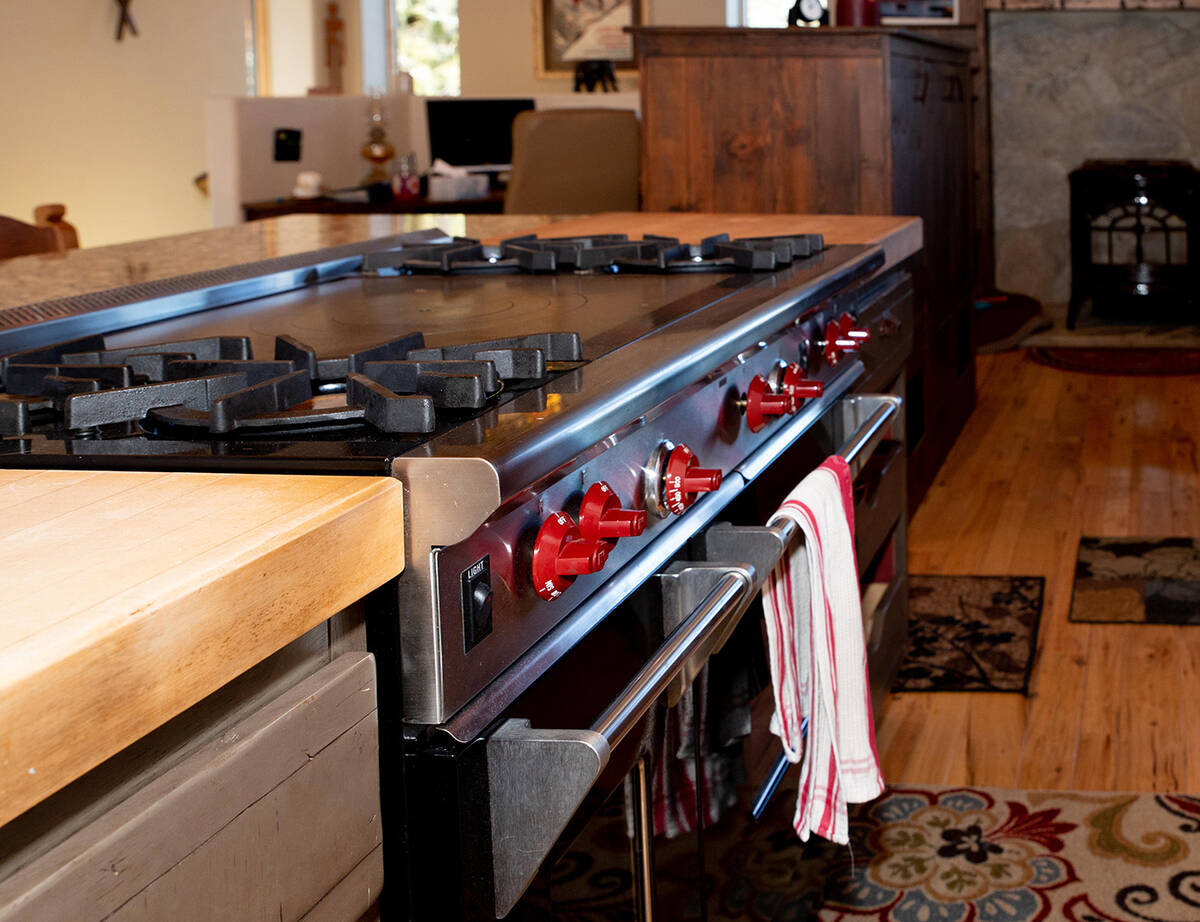STEVE SEBELIUS: Hands off my gas stove!
Democrats keep saying they don’t want to take away your natural-gas powered stove. But they really do.
Most recently, Richard Trumka Jr., a commissioner with the Consumer Product Safety Commission appointed by President Joe Biden, resurrected the issue when he said the board might entertain greater regulation of the appliances.
“This is a hidden hazard,” Trumka said in a Jan. 9 interview with Bloomberg. “Any option is on the table. Products that can’t be made safe can be banned.”
According to some scientific reports, natural gas stoves release pollutants — including nitrogen dioxide, carbon monoxide and fine particulate matter — that could lead to respiratory or heart problems, among others. Gas stoves also contribute to childhood asthma, public health research has found.
So, naturally, a commission charged with protecting consumers would ban such dangerous devices, right?
Not really. The chairman of the commission — Alexander Hoehn-Saric, also a Biden appointee — quickly made clear that no ban was in the works, notwithstanding any dangers.
“Research indicates that emissions from gas stoves can be hazardous, and the (Consumer Product Safety Commission) is looking for ways to reduce related indoor air quality hazards,” Hoehn-Saric said in a statement. “But to be clear, I am not looking to ban gas stoves, and the CPSC has no proceeding to do so.”
But why not? If they really are dangerous, shouldn’t they be banned? Either things are not as bad as we’re told, or the commission lacks the courage of its professed convictions.
This is not the first time the issue has arisen, either.
Here in Nevada, former Gov. Steve Sisolak commissioned a climate strategy released in 2020. The 255-page document included a very clear statement that natural gas was a thing of the past.
“Shifting away from natural gas is necessary to meet the 2050 net-zero GHG emissions goal. While some voices in Nevada applaud a transition away from natural gas to renewables, others cited concerns about the impacts to low-income households, rural communities and small business, citing the comparative cost of electricity and natural gas,” the report reads. “Indeed, consumer choice is important, and there should be options for consumers while existing gas pipelines are available. However, new pipelines will only lock in emissions for years, compromising Nevada’s ability to meet emissions-reduction goals.
“There are also co-benefits to eliminating in-home gas stoves in particular. A growing body of research indicates that using natural gas indoors can lead to poor indoor air quality, compromising respiratory health. Low-income households are more prone to exposure to these conditions as result of aging, inefficient appliances, and could benefit from a shift to electric appliances.”
The strategy made clear consumers wouldn’t be forced to give up their existing gas stoves, but that only electric stoves should be allowed in new buildings.
One lawmaker took the Sisolak climate strategy seriously. Assemblywoman Lesley Cohen, D-Henderson, introduced a bill in 2021. Assembly Bill 380 would have declared it the state’s policy “to reduce the use of combustible fuels in commercial and residential buildings” from 2016 levels by between 2.5 percent and 95 percent in increments between 2022 and 2050.
The bill died in the Assembly Committee on Growth and Infrastructure.
Of course, Southwest Gas objected in strenuous terms to the climate strategy and called out Sisolak. That’s understandable: It represented a direct and existential threat to the company’s business.
But the anti-gas stove movement appears also to represent an existential threat to political careers because people have grown rather fond of gas-powered stoves. Coming out against them, even if only to save people from themselves, puts Democrats in the position of advocating for something that most people don’t want.
So once again, the topic is broached, the outrage flows and the anti-stovers retreat, waiting for a more opportune time in the future to try again.
Certainly, the issue has been overblown: Trumka is one of five commissioners, and apparently the only one who used the word “ban” in connection with gas stoves. As the commission’s chairman said, there’s no effort to ban gas stoves, or even take a paltry half-step such as the Sisolak climate plan and ban them in new construction.
Someday, we won’t need natural gas at all: We’ll get all the power we need from wind, solar, geothermal, nuclear and, someday, utility-scale fusion reactors. But that’s tomorrow, not today, and — hazards or not — natural gas is still an efficient, inexpensive way to cook your dinner.
Contact Steve Sebelius at SSebelius@reviewjournal.com or 702-383-0253. Follow @SteveSebelius on Twitter.


















